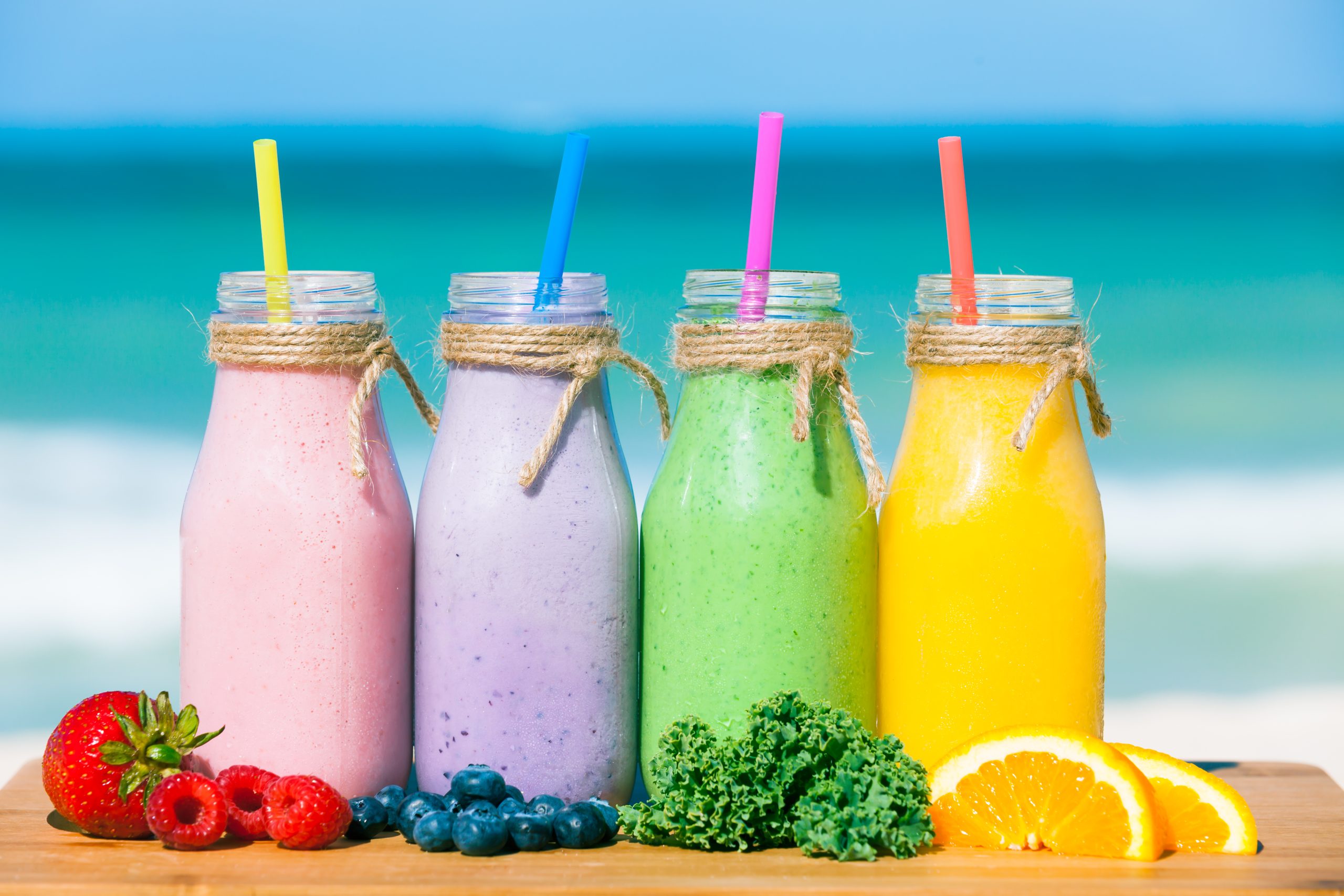
You may think it’s easy to eat healthy during the summer. But, between the BBQ’s and beach vacations (lots of food and lots of alcohol) and not as much exercise as we may need (those poolside lounge chairs have our names on it), the unwanted pounds may pile on. So, in efforts to stay healthy, toned and happy, here are a few summer time suggestions.
Take Advantage of Fresh Produce
Tomatoes: Slicing one cup of raw tomato for your lunch salad gives you as much as 40 percent of your recommended daily intake of vitamin C and 20 percent of your daily vitamin A.
Avocados: find their way into salads, dressings and on top of burgers regularly, so it’s a good thing that they’re full of fiber, vitamins B5, B6, C, K, folate and potassium, as well as cell-protecting antioxidants.
Greens: Beet greens, dandelion greens, spinach, lettuce and Swiss chard are all in season throughout the spring and summer months. These greens contain protein and iron, and are full of the cell-protecting and repairing antioxidants vitamins C and A, as well as B vitamins and fiber. Not only do they make a great salad, but you can toss them into a blender, along with some fresh fruit for a green smoothie.
Bell peppers: make a colorful addition to a snack, salad or meal, but there’s more to this crunchy fruit than meets the eye. Bell peppers contain phytochemicals called carotenoids, which give them their bright colors – and a diet high in carotenoid-dense foods has been associated with reducing the risk of developing breast cancer (1), cardiovascular disease, and age-related eye diseases.
Berries: Though each tasty variety of berry has its own unique nutritional values and functional benefits, all berries are high in antioxidants, fiber and vitamin C, so supercharge your diet by enjoying the entire berry patch!
Watermelon: has the highest concentration of lycopene of any fresh fruit or vegetable. High levels of lycopene of linked to lower risk of breast cancer, so indulge in this sweet fruit throughout the summer months. (2)
Make Healthier Food Choices
Choose lean proteins: Healthier meat alternatives include ground turkey and skinless chicken breasts. Fish is a very important part of a healthy diet. Grill salmon, tuna, lobster, steamer clams, and calamari for a low-calorie, protein-packed lunch or dinner. Summer is also the ideal time to get the freshest catch of seafood from your local grocer. On the other hand, build a better burger – without sacrificing taste – by using whole wheat buns, lean meats and opting for delicious toppings like pineapple, wasabi, guacamole, and low-fat or fat-free feta cheese.
Be smart about cold treats: To satisfy your sweet tooth and not feel guilty about it, look for some healthier alternatives to the typical calorie-laden summer treats. Buy low-fat versions of ice cream or try a sugar-free sorbet, which is a lower-calorie, refreshing alternative. Experiment with different brands and remember to control your portions!
Stay hydrated: With scorching hot temperatures and outdoor activities ramping up, dehydration is a major concern. To stay hydrated during the summer, avoid sugar-laden sport drinks. Buy a reusable water bottle and keep it with you all the time as a reminder to take sips regularly.
Prep for the beach- Ice cream stands and high-calorie barbecues are bound to put a damper on your diet, so manage these temptations by being prepared. Pack a cooler with ice, bottled water, sandwiches on whole grain breads, pita chips, hummus, yogurt and lots of fruit. You’ll feel healthier and happier at the end of the day.
With these tips you are sure to have an easy time of staying healthy and happy this summer!
Sources
1. Eliassen H, Hendrickson S, Brinton, L, et al. Circulating Carotenoids and Risk of Breast Cancer: Pooled Analysis of Eight Prospective Studies. Journal of the National Cancer Institute. December 2012.
2. Cui Y, Shikany JM, Liu S, Shagufta Y, Rohan TE. Selected antioxidants and risk of hormoneA chemical substance produced in the body that controls and regulates the activity of certain cells or organs. receptor-defined invasive breast cancers among postmenopausal women in the Women’s Health Initiative Observational Study. American Journal of Clinical Nutrition. 2008.